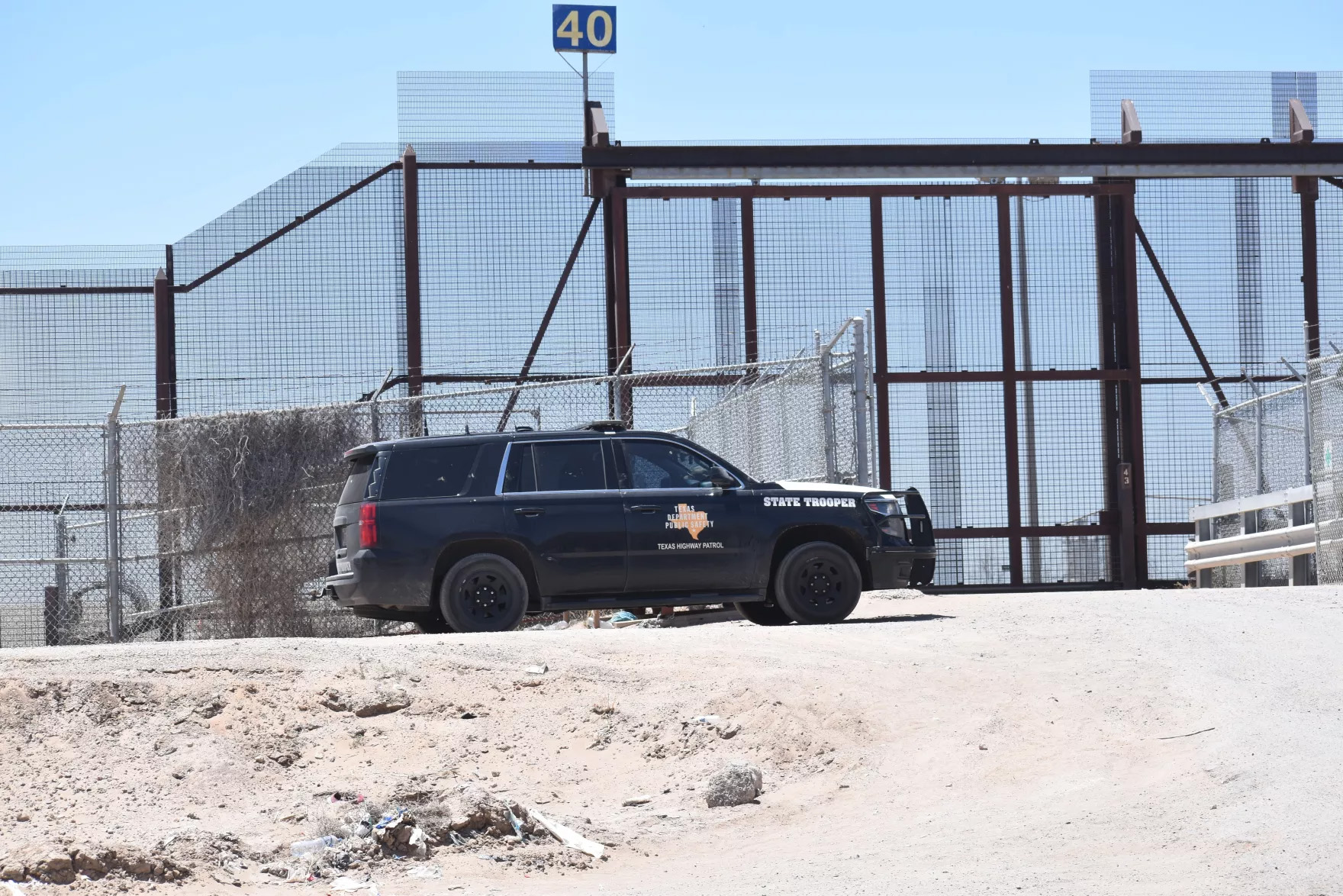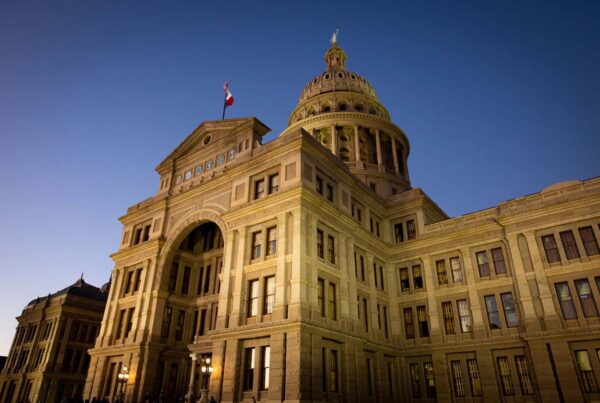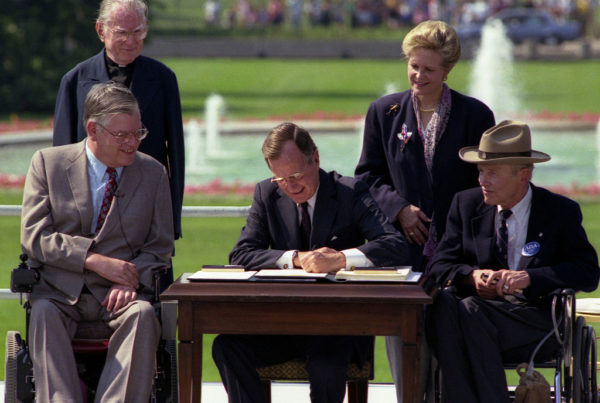Gov. Abbott already declared Mexican cartels as FTOs in a 2022 executive order, but that was mainly seen as a symbolic action because that designation is usually issued by the federal government. By approving SB 1900, lawmakers made cartel members susceptible to the same punishments gang members currently incur when convicted of crimes like criminal mischief, coercion, firearms violations and a host of other infractions. The legislation also allows Texas to seize property owned by FTO members and adds information about alleged cartel members to the state’s criminal database.
From the Texas Newsroom:
Texas’ Republican lawmakers again spared no expense on border security this session by allocating more than $5 billion towards the effort in the state’s 2024 – 2025 budget. That’s an increase from the estimated $4.5 billion set aside for border security in 2021. The bulk of this money will continue funding the controversial Operation Lone Star, a state-led effort that’s sent thousands of Texas Department of Public Safety officers and Texas National Guard soldiers to the border. Most of the funding will go to the Texas Department of Public Safety, the Texas Military Department and the office of Gov. Greg Abbott.
To date the state has spent about $10 billion in taxpayer monies for border security, which began to steadily increase in 2014 under former Gov. Rick Perry, also a Republican.
But the effort was given top billing after President Joe Biden took office in early 2021, leading Abbott to begin Operation Lone Star.
“Even though we’ve done a lot, we recognize that more must be done. Importantly the Legislature has recognized that also,” Abbott said during a bill signing earlier this summer when he signed a package of border-security and immigration bills. “In just two sessions Texas is spending close to $10 billion to deal with the crisis and chaos caused by the Biden administration.”
Operation Lone Star has seen its share of controversies: at least four National Guard members associated with the mission have died by suicide and Democrats in the U.S. Congress have demanded a federal investigation into the effort after reports that Texas DPS officers were mistreating migrants. The latest controversy has pitted the Biden administration against Abbott and the state in federal court after Texas installed a string of buoys in the Rio Grande at Eagle Pass. Abbott said the effort is just another tool in the state’s arsenal to secure the border. But Biden and other opponents said the buoys violate federal and international treaties with Mexico. A federal judge is still considering the case.
The budget wasn’t the only way lawmakers tackled border security this year. A slew of legislation – from creating a new state police force to compensating landowners for property damage caused by migrants or law enforcement – were debated over the five months of the regular session. While some of the most controversial measures didn’t make the cut, other proposals become law Friday, September 1. Here are some of the highlights:
Senate Bill 602: Expanding Border Patrol powers
The legislation gives agents of the United States Border Patrol the ability to search, detain and arrest people suspected of committing state crimes, vastly expanding the power of the federal agents. Before the law was passed, Border Patrol agents were only authorized to detain people suspected of committed state offenses pending a transfer to a peace officer. But state Sen. Brian Birdwell, R-Granbury, said that more than a dozen federal agencies allow their agents to enforce state law in some capacity and Border Patrol agents shouldn’t be excluded.
“The limitation on where Border Patrol can detain individuals means that they cannot detain any person suspected of committing a state felony when they are on patrol along the border,” Birdwell said during a committee hearing earlier this year.
The legislation requires that the Texas Department of Public Safety create a training program on state’s the criminal laws and their applications and for the Texas Attorney General’s office to notify U.S. Border Patrol sector chiefs of the change.
As introduced, SB 602 would have also authorized Border Patrol agents to enforce Texas misdemeanor laws, but it was narrowed down to include only felonies after some Democrats said including the lesser crimes would be too time consuming.
Senate Bill 1403: Allows Texas to work with other states on border security
Gov. Greg Abbott has already successfully recruited leaders from other states to join his border security operation. As of August 25, more than a dozen states – including Arkansas, Florida, Iowa, Idaho, Nebraska, North Dakota, Ohio, Oklahoma, South Carolina, South Dakota, Tennessee, Virginia, West Virginia, and Wyoming – have deployed personnel or resources to aid in Operation Lone Star’s controversial objectives, Abbott said in a statement last week.
The Texas Legislature hopes to take that a step further once SB 1403 goes into effect on September 1. The new law authorizes Texas to create and execute an interstate compact for border security purposes. Under the legislation, participating entities will share intelligence and other information about illegal activity on the state’s southern border. It also allows for sharing “funding and other assistance in creating and maintaining defensive border structures”— which likely means a border wall.
The debate over the legislation saw some opponents raise concerns about whether such a change required approval from the U.S. Congress. But lawmakers said that isn’t necessary because the compact would not increase the “political power of the compacting states in relation to the federal government.”
That wasn’t the only concern. State Sen. Juan “Chuy” Hinojosa, D-McAllen, pushed back on the component requiring participating states to share resources to build a border barrier.
“There might be a couple of places where you place a border wall, but we also focus on a virtual wall,” he said during a committee hearing when the bill was introduced.
Despite Hinojosa’s concern, the bill’s final version kept the requirement for a physical barrier, while also making room for expanding technology-based security.
Senate Bill 1900: Designates Mexican cartels as terrorist organizations
Designating Mexican cartels as Foreign Terrorist Organizations essentially treats alleged cartel members the same way the state treats members of street gang by adding them to the same penalty groups.














